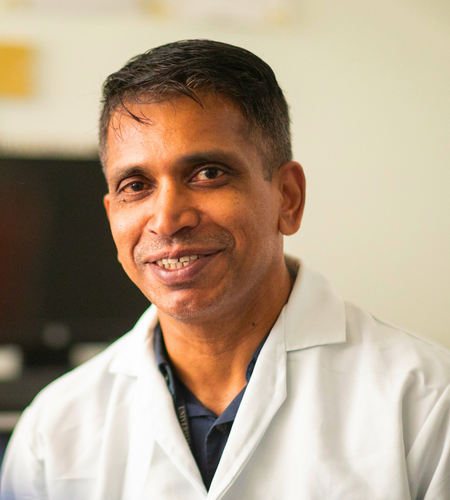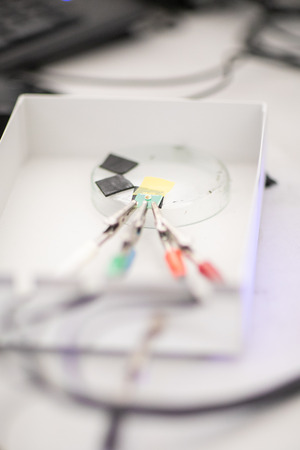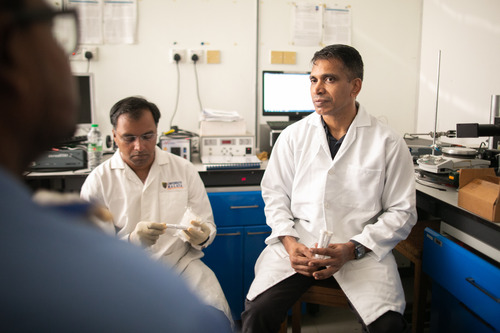
Optimised, cost-effective pathogen detection
The COVID-19 pandemic demonstrated the pressing need to develop effective methods of identifying pathogens and characterising infection strains. Malaysian physicist Vengadesh Periasamy has dedicated the last ten years to using cost-effective solid-state sensors to directly measure and identify the electrical properties of pathogens and cells, more quickly and effectively than traditional biochemistry processes. His work characterising cells could transform disease detection and infection control, potentially supporting mass home testing during future outbreaks.
Innovation and Impact: Cost-Effective Pathogen Detection
When solid-state electrical sensors subject individual cells to electric and magnetic fields, the resulting electronic profiles can be thought of as cellular barcodes, immediately identifying certain pathogens by their characteristic responses to electricity. These miniaturised point-of-care devices could be used in private homes to proactively screen for issues, supplanting retrospective laboratory-based detection methods.
Swift and cost-effective cellular profile matching would contribute towards the UN’s Sustainable Development Goals, relating to good health and wellbeing. The ability to differentiate between healthy or cancerous breast tissue cells, for instance, would minimise healthcare imbalances around the world. It could also contribute towards efforts on clean water and sanitation, since many pathogens are water-borne; and universal access to safe drinking water.
To date, EProfiler Solutions comprises four non-salaried employees at a UK-registered business. Vengadesh’s long-term objective is to establish proprietary manufacturing hubs, with the UK on a shortlist of potential locations to mass-manufacture disposable sensors. A 2021 laboratory prototype has subsequently evolved into a minimum viable product, with casings in development, and fabrication scheduled to start in late 2024. The next step for this bootstrapped business will be an official launch in early 2025.

Initially, I was just an academic, but when I left the LIF programme, I was also an entrepreneur.
Vengadesh Periasamy
How has LIF Impacted your Business and Future Plans?
“LIF allowed me to realise that when you become an inventor, there is always a prospect of bringing it to a bigger audience,” says Vengadesh. “Initially, I was just an academic, but when I left the LIF programme, I was also an entrepreneur. I was already charting my own path because I had a technical skill, but I didn’t have the entrepreneurial mindset that I gained throughout the programme.” This is reflected in the burgeoning number of partnerships EProfiler Solutions has with semiconductor and electronics companies, in preparation for mass production of sensor-based hardware. LIF also introduced Vengadesh to his business co-founders, accelerating the company’s development.
Validation devices are currently being sent around the world, seeking custom and investment; the network to do so being, in part, developed through the programme. Once their products can successfully profile infected or cancerous cells, EProfiler Solutions could contribute towards treatment development and drug deliveries, potentially playing an instrumental role in tackling illnesses and disease. “Because of our experience during the pandemic,” says Vengadesh, “we need to move onto next-generation technology where all the old limitations are taken care of.”
LIF allowed me to realise that when you become an inventor, there is always a prospect of bringing it to a bigger audience.

Looking to find out more about our entrepreneurs?
Click below to find out more about the entrepreneurs from this year's programme.
